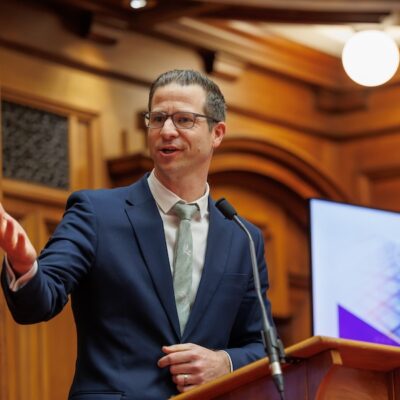Financial advisory scholarship targets diversity
New Zealand’s financial advice industry desperately needs more diversity, particularly from women, Pasifika and Māori, says the principal of a local financial advisory firm.
White, middle-aged, affluent interests are overrepresented in the New Zealand financial advice industry, which desperately needs more diversity, particularly from women, Pasifika and Māori, says the principal of a local financial advisory firm.
Dylan Mann (pictured) from The Advice Hub is offering a paid scholarship – particularly to those displaced by Covid – as a pathway to diversify the financial services industry and help uplift some of our less affluent communities.
Mann says Covid-related job losses and career changes have caused an influx of Kiwi’s seeking personalised financial advice, and New Zealand doesn’t have enough people qualified to deal with this influx. Compounding the Covid issue is the looming Baby Boomer bubble of Kiwis about to leave the workforce and retire.
“The fact is that most financial advisers are middle-aged white men over 55, who will focus on the wealthy. We desperately need diversity – people who will work with people of all walks of life and income levels. Women, Pasifika and Māori financial advisers are rare, and this needs to change. Giving personalised financial advice to local communities needs to come from a new generation of financial advisers that can best communicate, educate and offer researched working strategies to their problems.”
Mann says financial advisers are not the same as budget advisers who work with debt because their advice is about helping working people get ahead, build wealth through investment and prepare for a better retirement.
The Advice Hub Scholarship will pay for the education that gets more women and more people of Pacific and Māori descent from all around New Zealand working as elite financial advisers.
“This new generation of financial advisers will be empowered to help their family, friends and wider community. The only way we are going to improve outcomes for all New Zealanders is to make personalised financial advice available to more diversified groups, as well as to people on lower incomes and the average-income Kiwis.”
Mann says The Advice Hub will fund the course fees of 100 scholarships (through Open Polytechnic), enabling those recipients to become licenced financial advisers. The online course takes around three and six months. It includes a tutor from the Open Polytechnic and a senior financial adviser mentor from The Advice Hub, followed by full-time employment within the New Zealand community.
The scholarship will include:
- The entire cost of the qualification.
- Financial Markets Authority registration fee.
- Criminal, insolvency and credit checks.
- The required malpractice and professional indemnity insurance.
- The required Financial Ombudsman service.
- And all the financial adviser tools “needed to be amazing”.
“I want people who want to be part of the financial solution to stronger financial community education,” Mann said.
To qualify, candidates need to have a clear criminal history for dishonesty (fraud or deception), be reasonably comfortable with a computer and Microsoft programs and provide a free credit check. A poor credit rating isn’t necessarily a barrier to entry.
Mann offers the following advice to people who are looking for a career or changing careers:
1. Follow a lifestyle career that gives you flexibility
Mann says that job loss may be temporary for some, so it makes sense to choose something with flexibility. “If your job was in tourism/aviation or hospitality, you can always go back to travelling the world and the things you love when everything opens up and still be a financial adviser.”
2. Choose to help people
Mann says he grew up with no financial stability after he was born to a mother who was only 16-years-old at the time. Experiencing that lack of financial stability drives him to help others from underprivileged situations.
“There is nothing more rewarding than sitting at a person’s kitchen table, hearing their financial worries and then coming back to provide personalised financial advice to protect and benefit that family.”
3. Follow the demand
Mann says that identifying market demand is a crucial career strategy. “There are around 2,000 investment advisers in New Zealand, and the majority of our population are ‘Boomers’ who are about to retire with nobody to offer them personalised financial advice on how to manage their finances. Covid has weeded out most of the fluffy careers, and those that remain have demonstrated that they are needed through good times and bad.”
Mann says he is on a mission to change the world by making personalised, high-quality financial advice accessible to all people to ensure that everybody benefits from the kind of financial advice only the wealthy currently enjoy.
For applications go to: https://forms.tah.co.nz/dylan/scholarship






